News
Merchan: Trump will be sentenced

Judge orders Trump to be sentenced in hush money case on Jan. 10
New York Supreme Court Justice Juan Merchan has set a date for sentencing in President-elect Donald Trump’s hush money case. The judge ruled on Friday that Trump would be sentenced on January 10, under two weeks before he’s set to assume the presidency.
The planned sentencing hearing comes more than six months after a Manhattan jury found Trump guilty of 34 felony counts of falsifying business records to hide hush money payments to adult film actress Stormy Daniels. The scheduled date brings to an end the indefinite postponement in sentencing following Trump’s November election win.
In the 18-page order, Merchan tipped his hand and shared that he had no plans to sentence Trump to jail time.
“While this Court as a matter of law must not make any determination on sentencing prior to giving the parties and Defendants opportunity to be heard, it seems proper at this juncture to make known the Court’s inclination to not impose any sentence of incarceration, a sentence authorized by the conviction but one the People concede they no longer view as a practicable recommendation,” he wrote.
While denying Trump’s request to vacate the verdict, he shared that he would likely sentence the president-elect to an “unconditional discharge.” This sentence without consequences seemed “the most viable solution” to Merchan, granting Trump an opportunity to appeal his conviction without having to face prison time or fines.
Sentencing has been postponed multiple times since Trump’s conviction, once after the Supreme Court established a broader presidential immunity and again as Merchan pushed a hearing until after Election Day to avoid the appearance of political meddling.
Manhattan District Attorney Alvin Bragg suggested in December that sentencing be held until after Trump’s term ends, an idea Trump’s team rejected. Trump will have the option to appear virtually or in person for sentencing just over a week before he is slated to hold a “victory rally” at a D.C. arena.
Nearly all other criminal proceedings against Trump evaporated in the weeks after his election win. Special Counsel Jack Smith suspended cases concerning Trump’s role in the Jan. 6 storming of the U.S. Capitol and handling of classified documents. Still, Merchan said the sentencing must move forward to protect citizens’ belief in the “rule of law.”
“To vacate this verdict on the grounds that the charges are insufficiently serious given the position Defendant once held, and is about to assume again, would constitute a disproportionate result and cause immeasurable damage to the citizenry’s confidence,” he wrote.
News
“I think yes”: Biden believes he would have won election over Trump had he stayed in the race

When asked if his health would have held up to four more years of the presidency, Biden said “Who the hell knows?”
President Joe Biden thinks he had the juice.
The outgoing president speculated that he would have beaten President-elect Donald Trump a second time had he stayed in the presidential race in 2024. In a wide-ranging interview with USA Today, Biden was adamant that he would have fared better than Vice President Kamala Harris but balked on whether he could have served for four more years.
“It’s presumptuous to say that, but I think yes,” Biden told the outlet when asked if he would have won in November. “When Trump was running again for reelection, I really thought I had the best chance of beating him.”
Biden was less confident about making it through a second term. He said he considered “pass[ing] the baton” because he “wasn’t looking to be president when I was 85 years old, 86 years old.”
“Who the hell knows?” Biden said when questioned directly about whether he would have held his hypothetical presidency through 2028.
Elsewhere in the interview, Biden speculated about how his presidency would be remembered and advocated for what he viewed as the strengths of his administration.
“I hope that history says that I came in and I had a plan how to restore the economy and reestablish America’s leadership in the world,” Biden said. “That was my hope. I mean, you know, who knows? And I hope it records that I did it with honesty and integrity, that I said what was on my mind.”
News
BREAKING: Mexican President Claudia Sheinbaum Claps Back After Trump Suggests Renaming Gulf of Mexico to “Gulf of America” with Bold Renaming Proposal of Her Own!
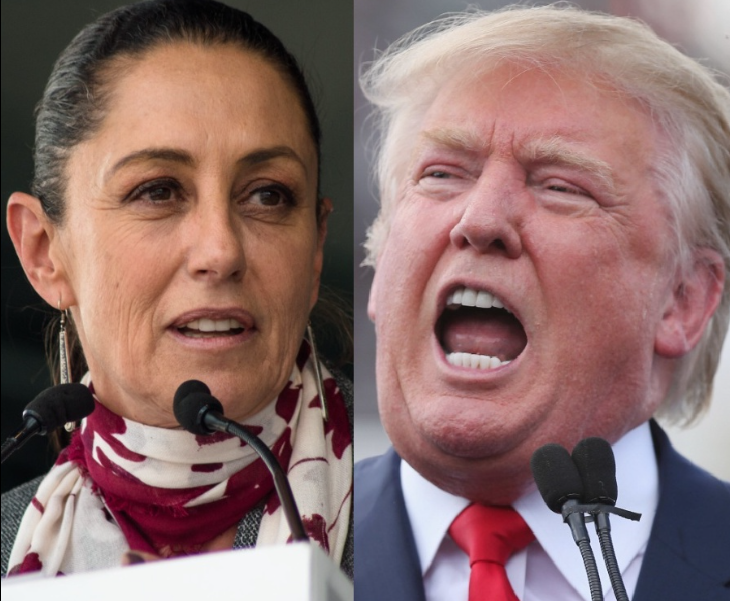
Mexican President Claudia Sheinbaum hits back hard after Donald Trump absurdly suggests renaming the Gulf of Mexico to the “Gulf of America” by suggesting some renaming of her own.
This is how you handle a man-child like Trump…
“I mean obviously, ‘Gulf of Mexico,’ the name is recognized by the United Nations, an organism of the United Nations. But next, why don’t we call it ‘Mexican America?’ It sounds nice, doesn’t it?” Sheinbaum said at a press conference.
She then waved at a map showing that North America was historically referred to as “Mexican America” before the rise of the United States.
“Since 1607 The Constitution of Apatzingán was for Mexican America, so we’re going to call it ‘Mexican America,’ it sounds nice, doesn’t it?” she went on. “And Gulf of Mexico, well, since 1607 and it’s also recognized internationally.”
Brian Winter, vice president of the Council of the Americas, praised Sheinbaum’s remarks—
“Humor can be a good tactic, it projects strength, which is what Trump responds to. It was probably the right choice on this issue,” he said.
“Although President Sheinbaum knows it won’t work on everything — Trump and his administration will demand serious engagement from Mexico on the big issues of immigration, drugs and trade,” Winter added.
Incidents like this reaffirm what a huge mistake the United States made be reelecting Trump. We are transitioning from stable, sane governance to the egomaniacal ravings of a reality TV star.
The world is laughing at us.
News
Trump’s trolling and tariffs sped up Trudeau’s demise. How will Canada handle him now?

Liberal Party infighting over Trudeau’s handling of the president-elect and his threat of tariffs dealt a final blow to the prime minister’s premiership. What now?
Canadians woke up Tuesday to an uncertain future, after Prime Minister Justin Trudeau said he would resign and bring his near-decade in power to an end.
Trudeau’s announcement came just days into an election year and followed weeks of mounting pressure from within his own party to step down as he battled dire poll ratings partly driven by soaring inflation, rising immigration and his handling of President-elect Donald Trump.
“If I’m having to fight internal battles, I cannot be the best option” in Canada’s next election, Trudeau, 53, told reporters in Ottawa.
His decision has triggered an urgent search within the Liberal Party to identify a new candidate who can take on Conservative leader Pierre Poilievre. Poilievre has dominated in the polls and was last on 44% according to the Canadian Broadcasting Corporation, compared with Trudeau — whose rating sits just above 20%.
The Trump factor
A key focus for whoever leads Canada next will be managing their country’s relationship with the incoming Trump administration.
After winning re-election in November, the president-elect vowed to impose a 25% tariff on all products imported from Canada and Mexico.
While Trudeau sought to appease Trump, visiting him at his Mar-a-Lago estate in Florida, the incoming president has since repeatedly jabbed at the prime minister, suggesting making Canada the 51st state and reiterating the idea in response to Trudeau’s resignation.
Trudeau’s handling of Trump precipitated the final blow to his tenure, with the high-profile departure last month of his Deputy Prime Minister and Finance Minister Chrystia Freeland. In a scathing resignation letter, she accused Trudeau of failing to take seriously Trump’s threats to increase import tariffs on Canadian goods.
Freeland warned that Canada needed to take Trump’s plans “extremely seriously” and avoid “costly political gimmicks.”
In contrast to Trudeau, Poilievre — the former-Conservative minister’s biography touts him as a “life-long conservative” and “champion of a free market” — has sought to present himself as the candidate with the “strength and smarts to stand up for this country.”
In an interview with Canadian broadcaster CTV News last month, Poilievre said that his first message for the incoming president was “that first and foremost, Canada will never be the 51st state of the U.S.” — and Canada, he said, had a “very proud future ahead of us.”
Tari Ajadi, a politics professor at McGill University in Montreal, was less sure. He told NBC News that Poilievre has yet to produce a clear plan on how to tackle the Canada-U.S. relationship under Trump, adding that “I think Canada’s in for a rough ride.”
What happens now?
Even though Trudeau is quitting, Canadians will have to wait for months before they can head to the polls.
An election date has yet to be announced, and while the Canada Elections Act says it must be held on or before Oct. 20, Trudeau’s resignation means it’s likely that a vote will be called before then.
Before that can happen, the Liberal Party must find a candidate. Trudeau said he would remain at the party’s helm until his party colleagues have undertaken a “robust, nationwide, competitive process” to find his successor.
In the meantime, Trudeau said Canada’s governor general had accepted his request to prorogue Parliament, suspending proceedings without the dissolution of parliament, until March 24. Then, a confidence vote is expected to be held, with a no-confidence result triggering the next federal election.
That means the Liberal government will remain in power, but parliamentary activity will come to a halt.
Referring to his party’s lack of working majority and Canada’s legislative gridlock, Trudeau said Monday that “Parliament has been paralyzed for months after what has been the longest session of a minority Parliament in Canadian history.”
Who will replace Trudeau?
Trudeau, a former teacher who campaigned with the slogan “sunny ways,” took office in November 2015 and enjoyed high popularity ratings early in his leadership with the promise of liberal reforms, progressive tax policies and a focus on gender equality.
His initial appeal was also boosted by the legacy of his father, the charismatic but polarizing Pierre Trudeau, who was one of Canada’s longest-serving leaders.
But in recent years, Trudeau’s approval ratings plummeted from around 65% in September 2016 to around 22% in December, according to the nonprofit Angus Reid Institute.
According to figures from the Angus Reid Institute, Freeland, a former journalist, is the Liberal candidate most likely to beat Poilievre.
Former Bank of Canada governor Mark Carney is also a contender, and the Conservatives have sensed that. They have long attacked Carney, with Poilievre dismissing him as “just like Justin.”
But regardless of who Trudeau’s successor is, “it’s hard to imagine anyone coming in who can hold on to the government in the next election,” Cornell University government professor Peter Loewen.
-

 News3 weeks ago
News3 weeks agoU.S. Military Service Is the Strongest Predictor of Carrying Out Extremist Violence
-

 Uncategorized3 weeks ago
Uncategorized3 weeks agoBREAKING: Kylie Kelce hits back hard after MAGA trolls swarm her with hatred for daring to dethrone Joe Rogan as the #1 podcaster in America.
-
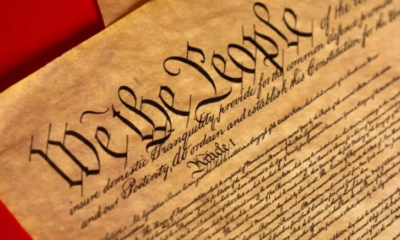
 News2 weeks ago
News2 weeks agoConstitutional Law expert: Trump will be an “illegitimate” President given he’s barred from office by 14th Amendment
-
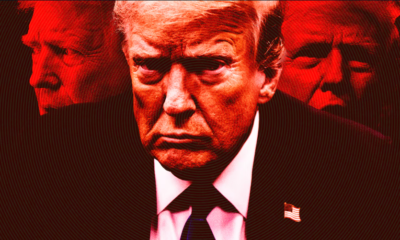
 News2 weeks ago
News2 weeks agoTrump Blames ‘Deranged’ Enemies for Hush Money Case in Posts
-
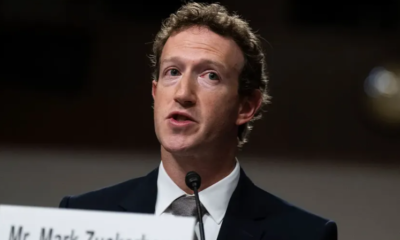
 News2 weeks ago
News2 weeks agoMark Zuckerberg tells Fox News that Meta will “get rid of fact checkers” in latest appeal to Trump
-
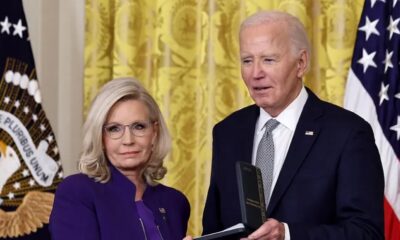
 News3 weeks ago
News3 weeks agoMAGA “offended” at Liz Cheney award
-
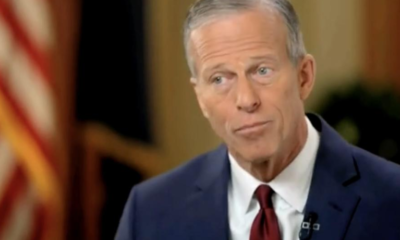
 News2 weeks ago
News2 weeks ago‘Is It Realistic?’: Top Republican Casts Doubt on Trump’s Deportation Quest
-
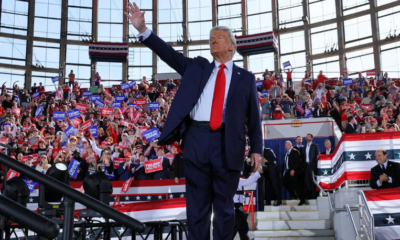
 News2 weeks ago
News2 weeks agoFailing to tell the central story’: Reporter reveals what media misses in Trump coverage






